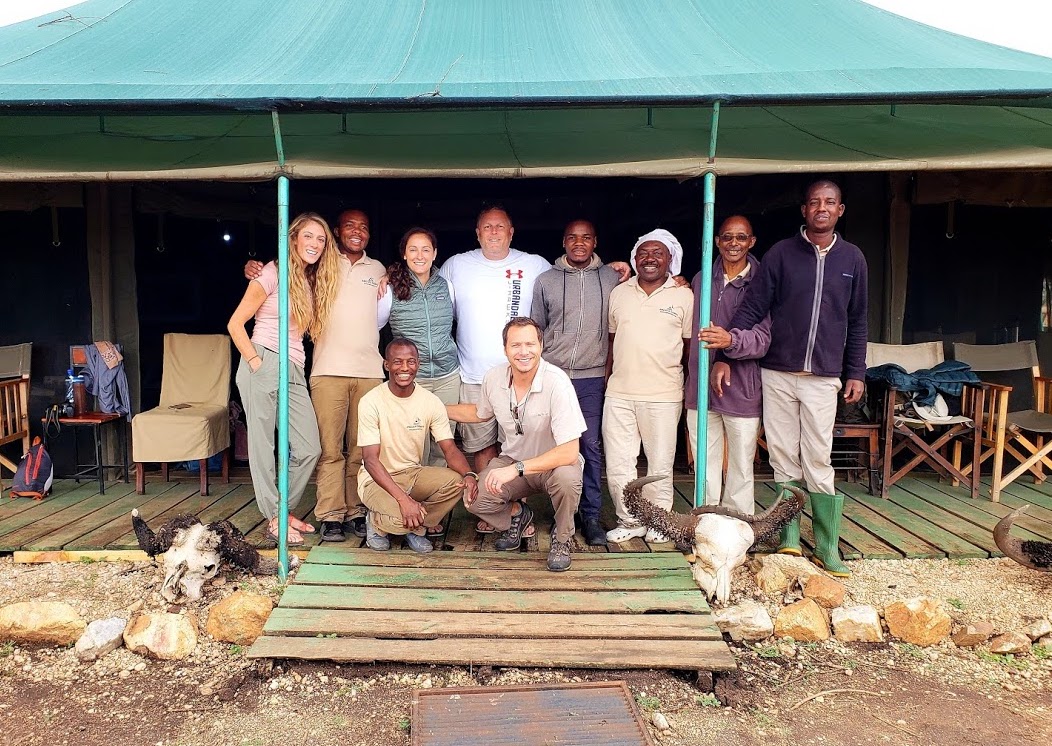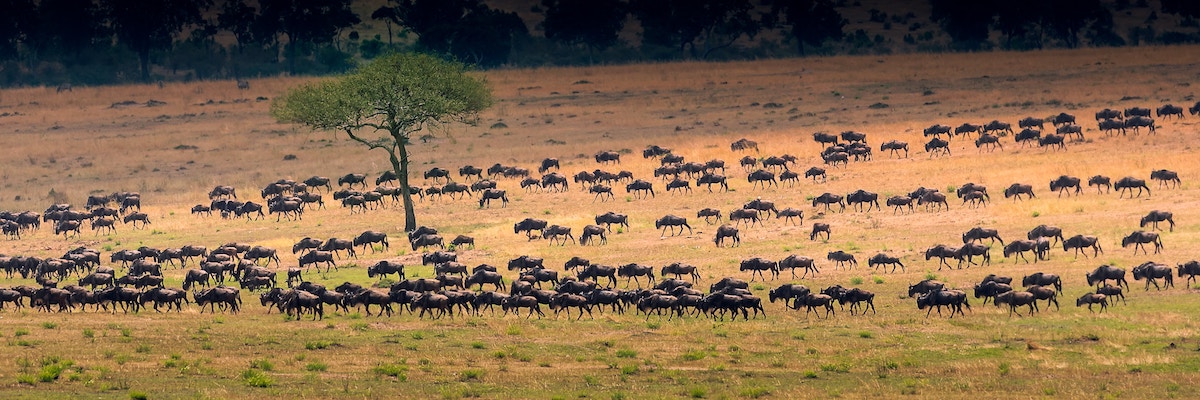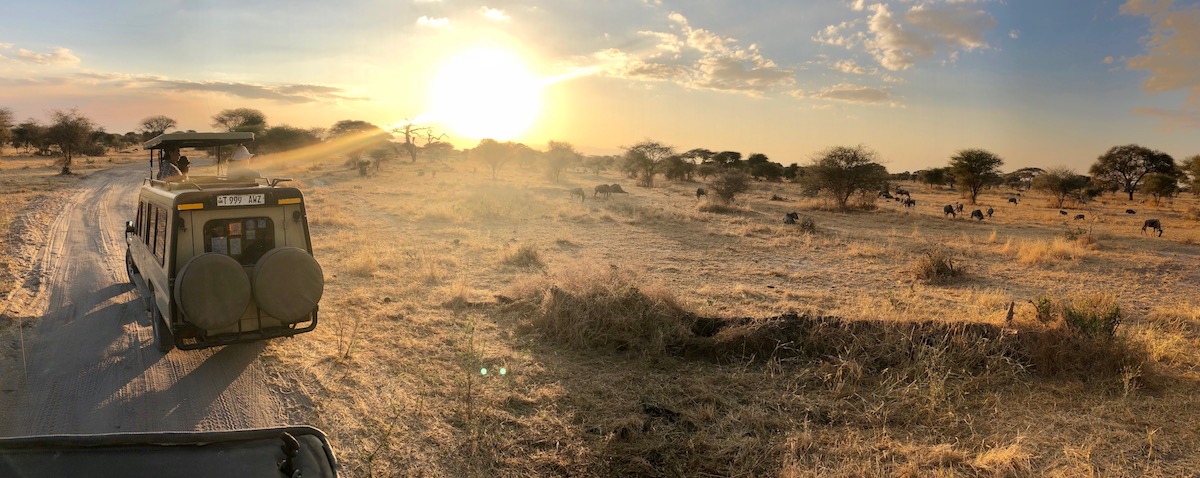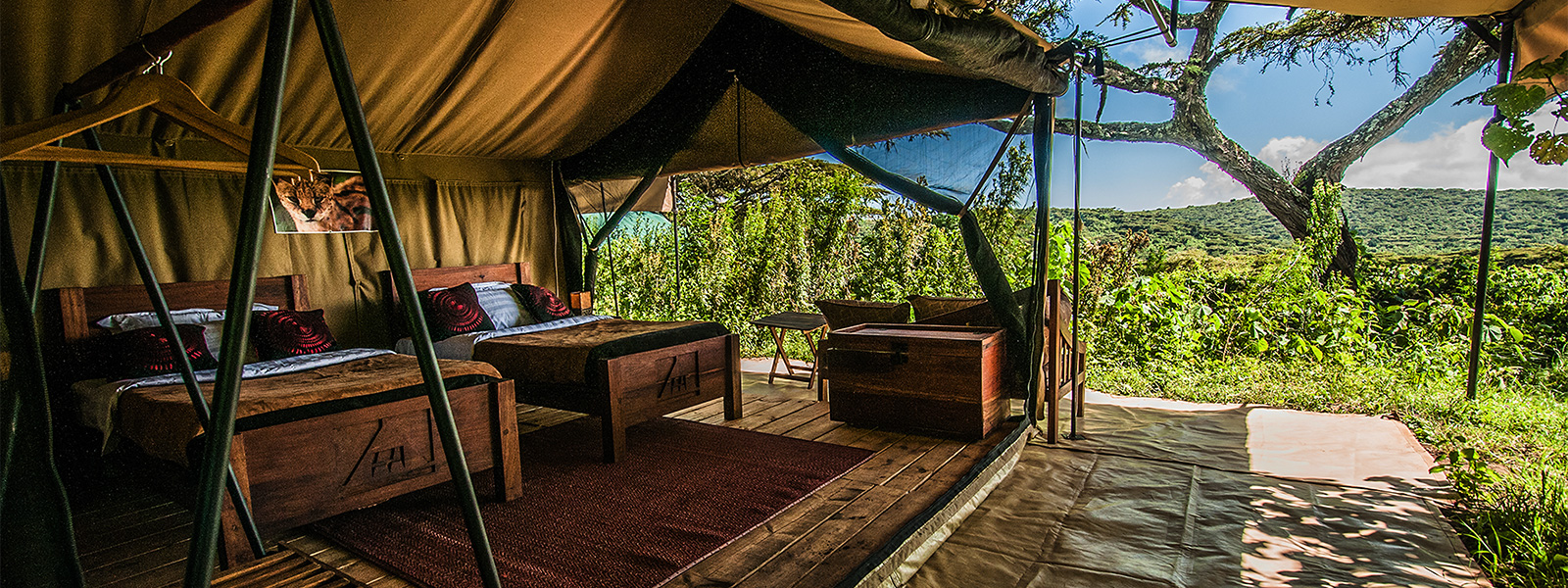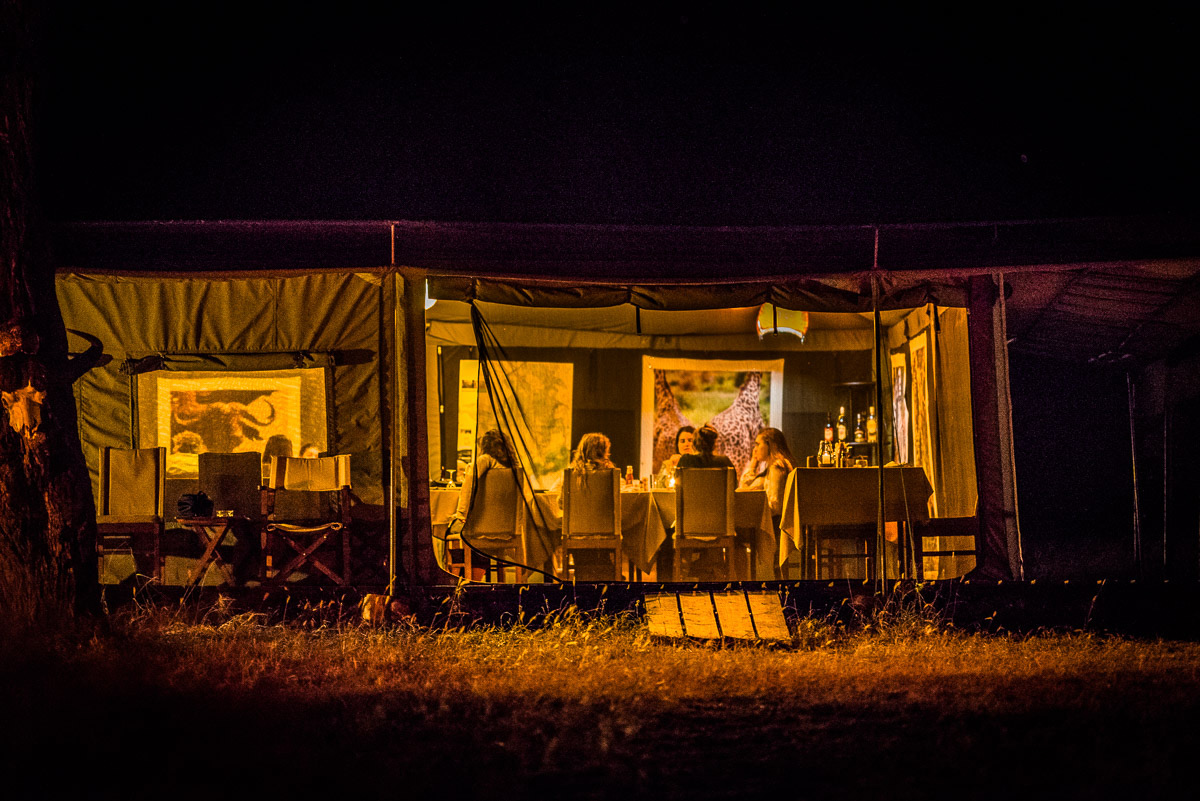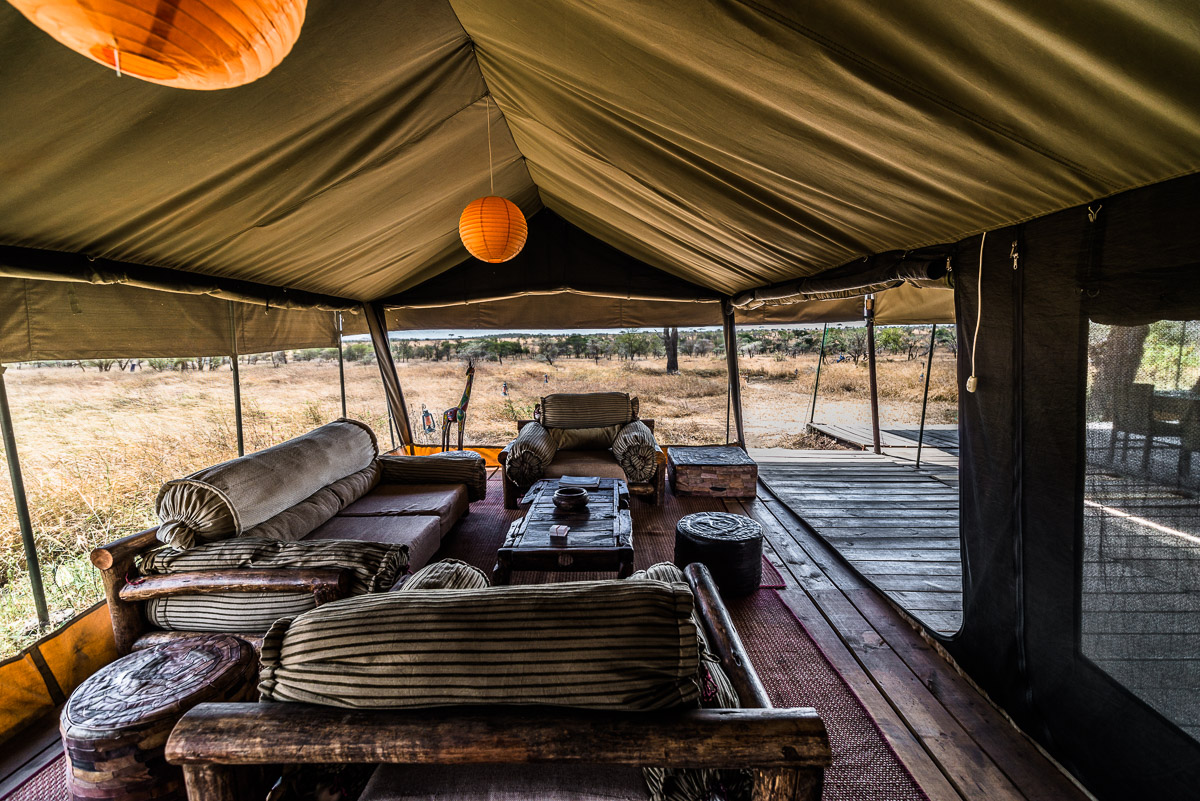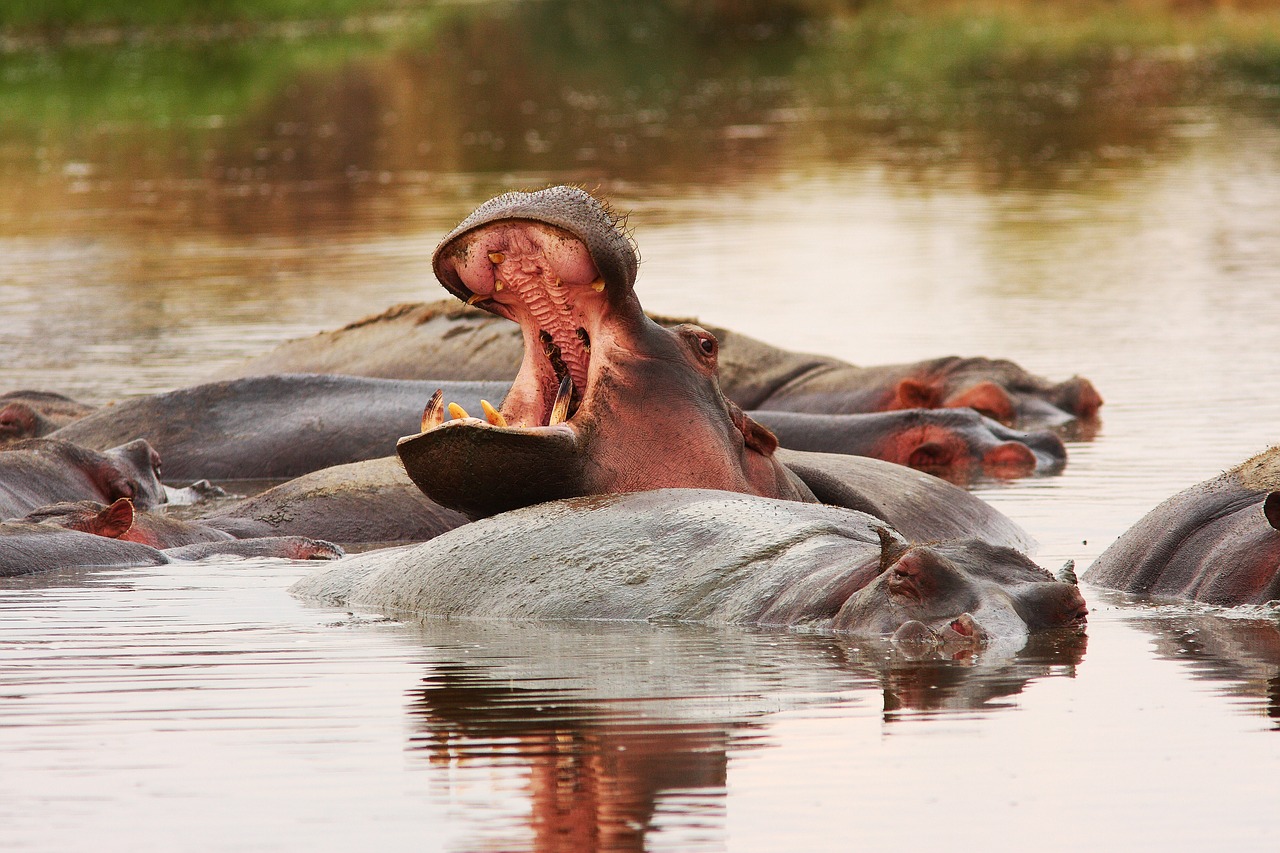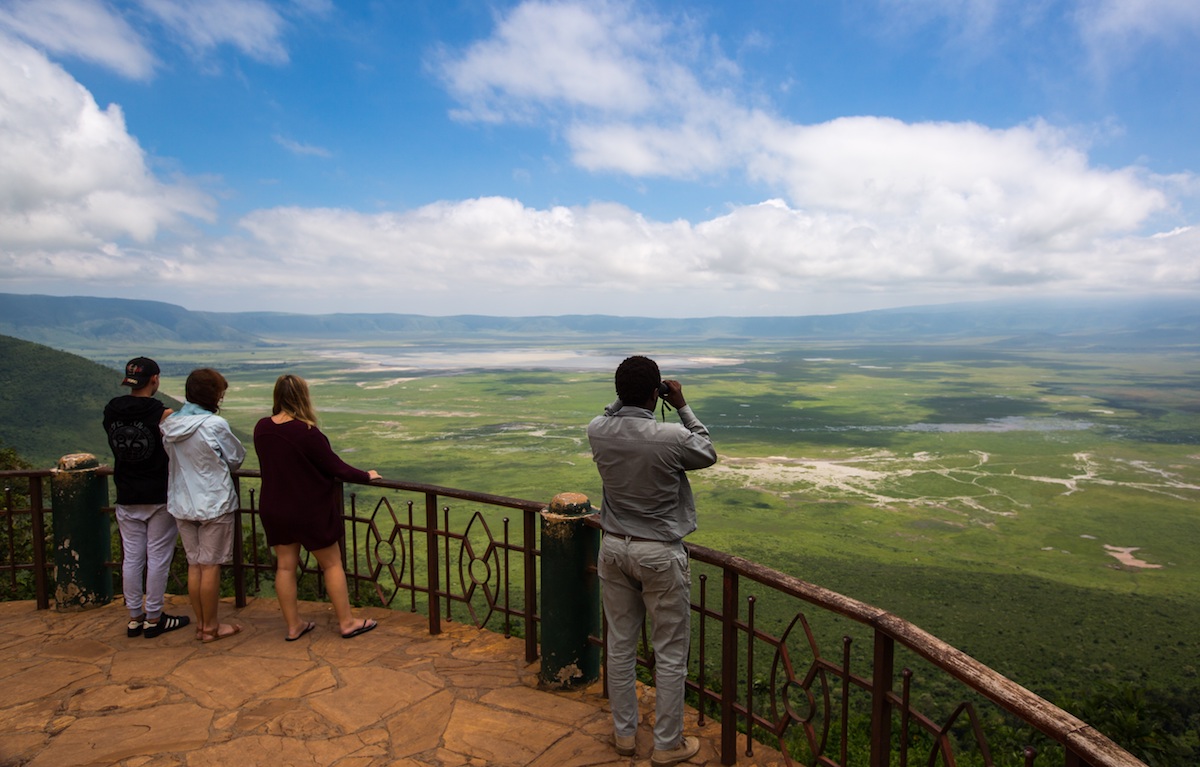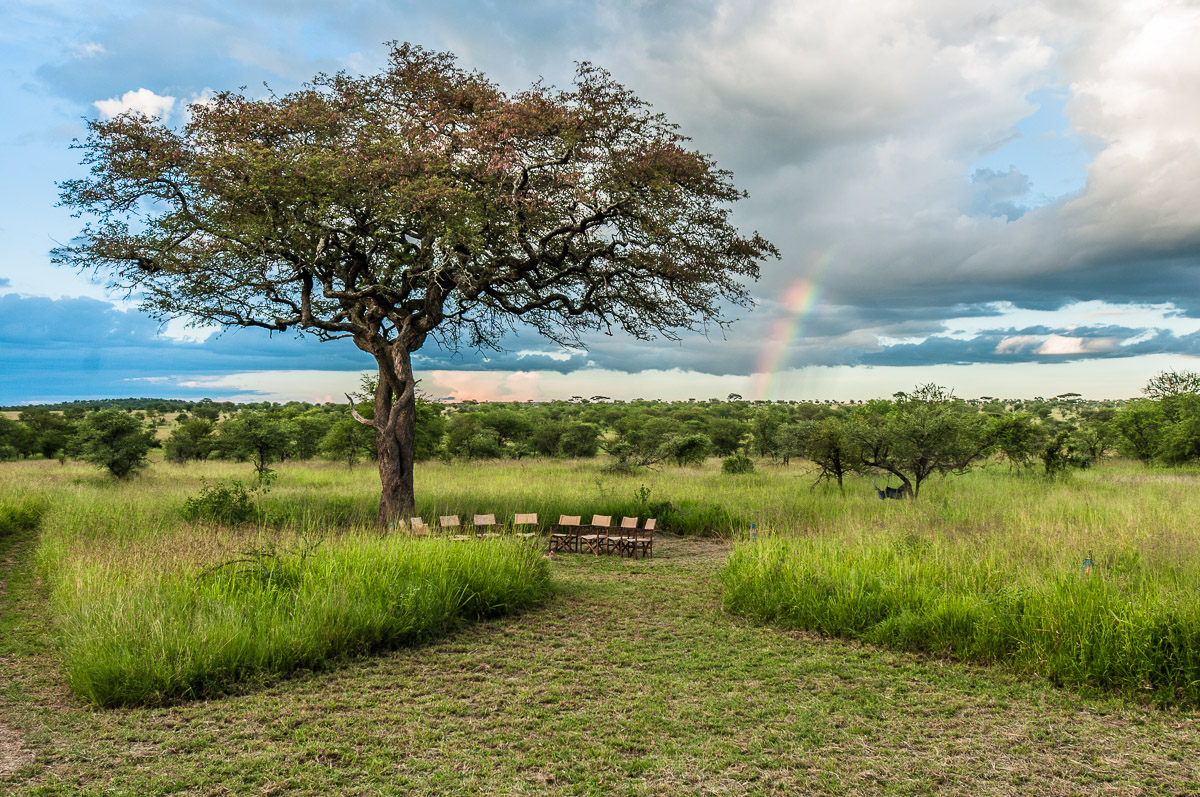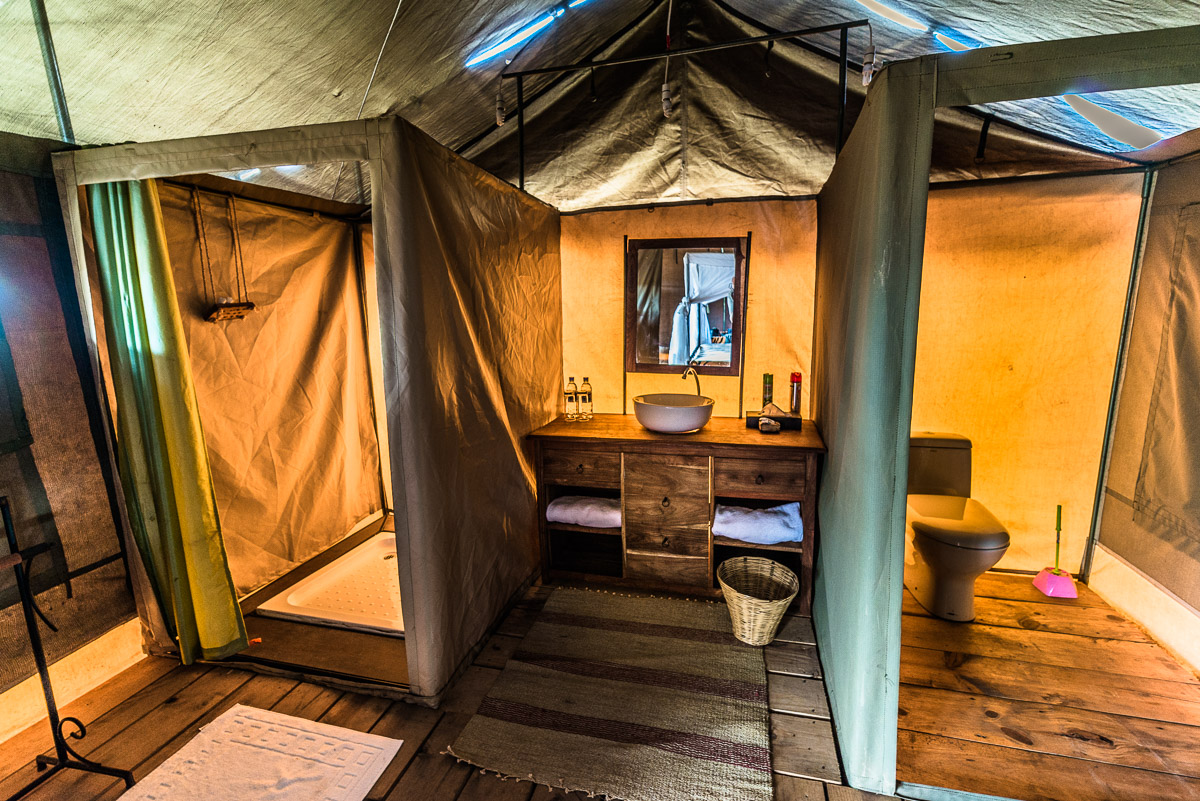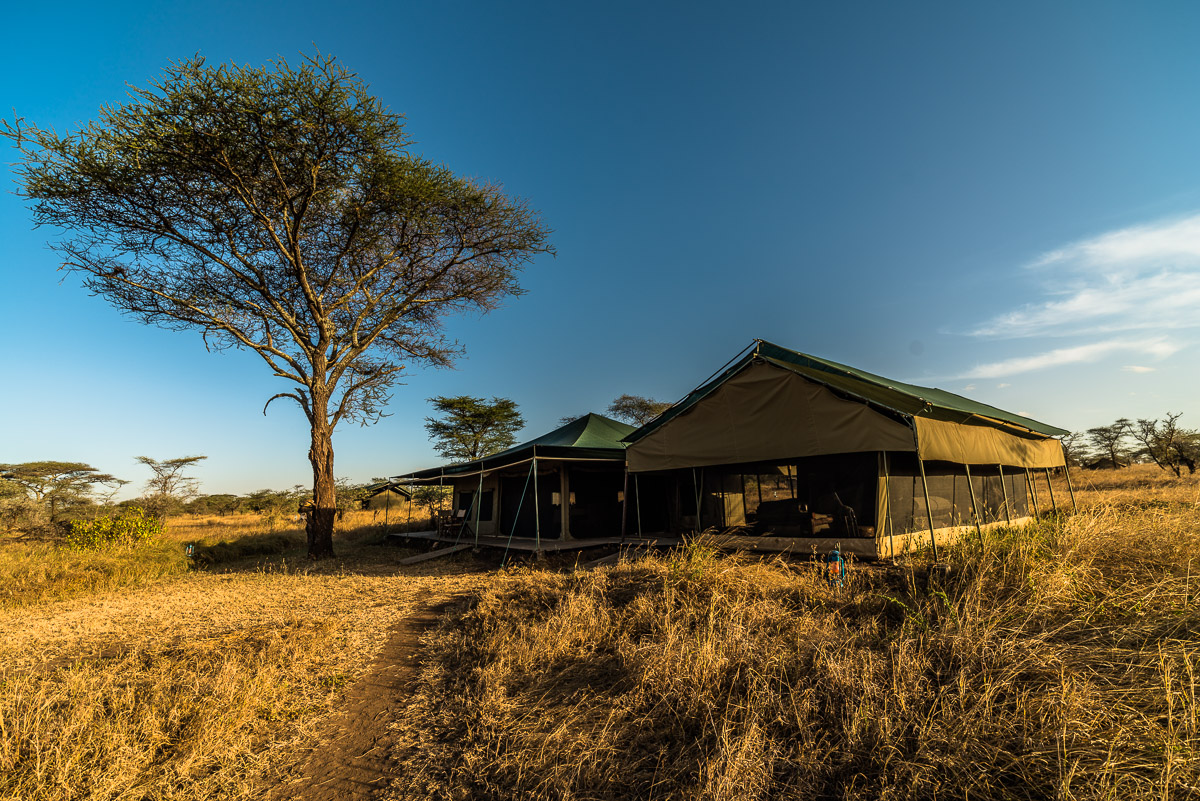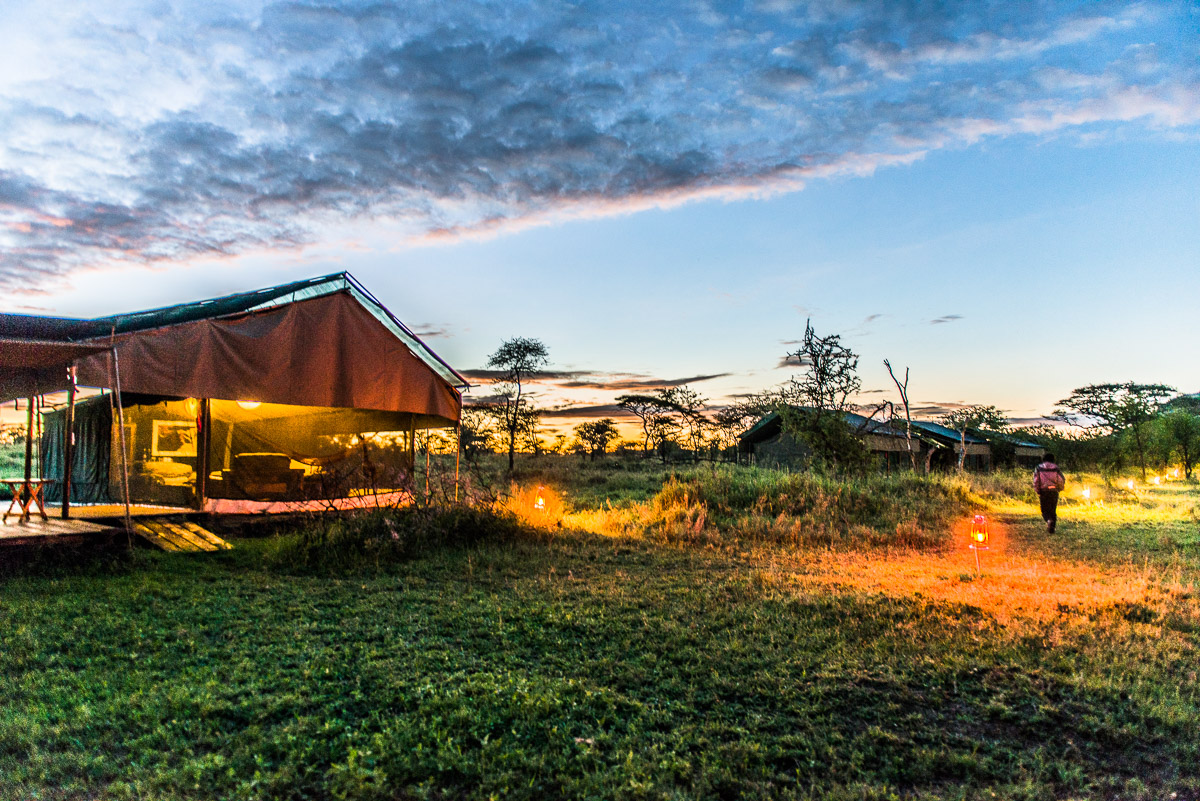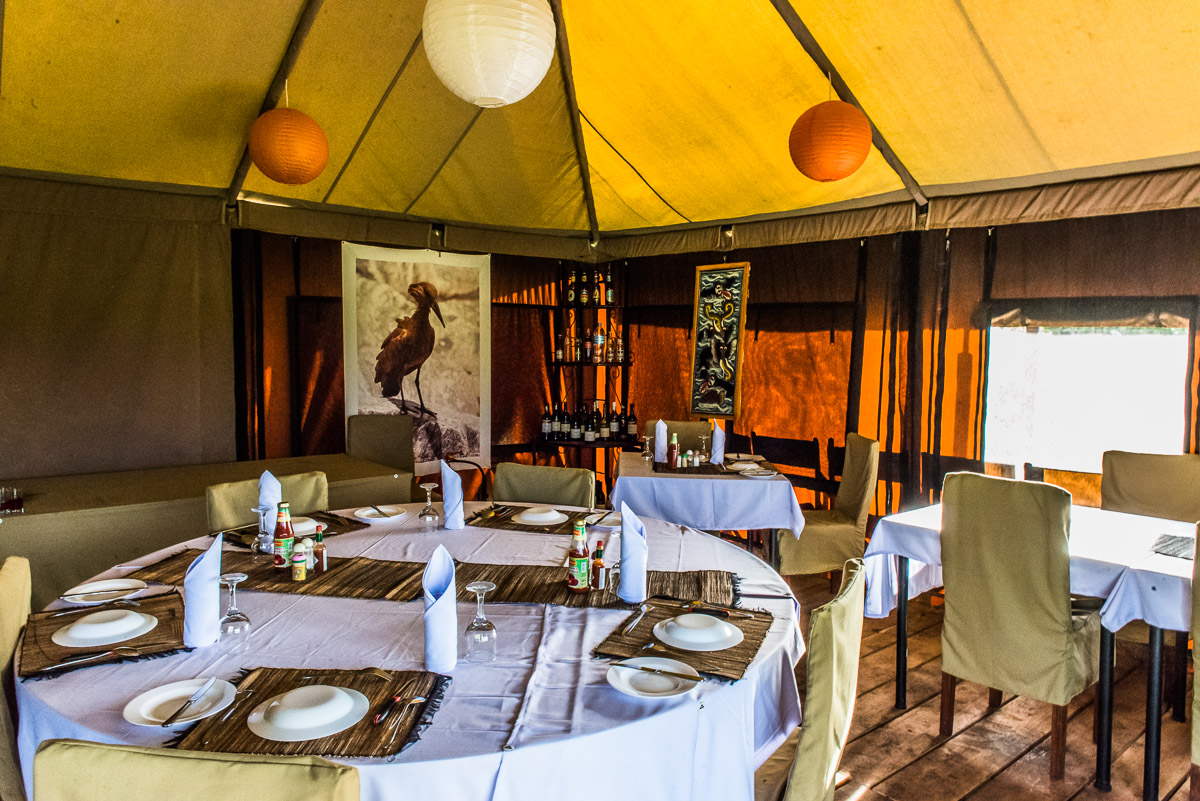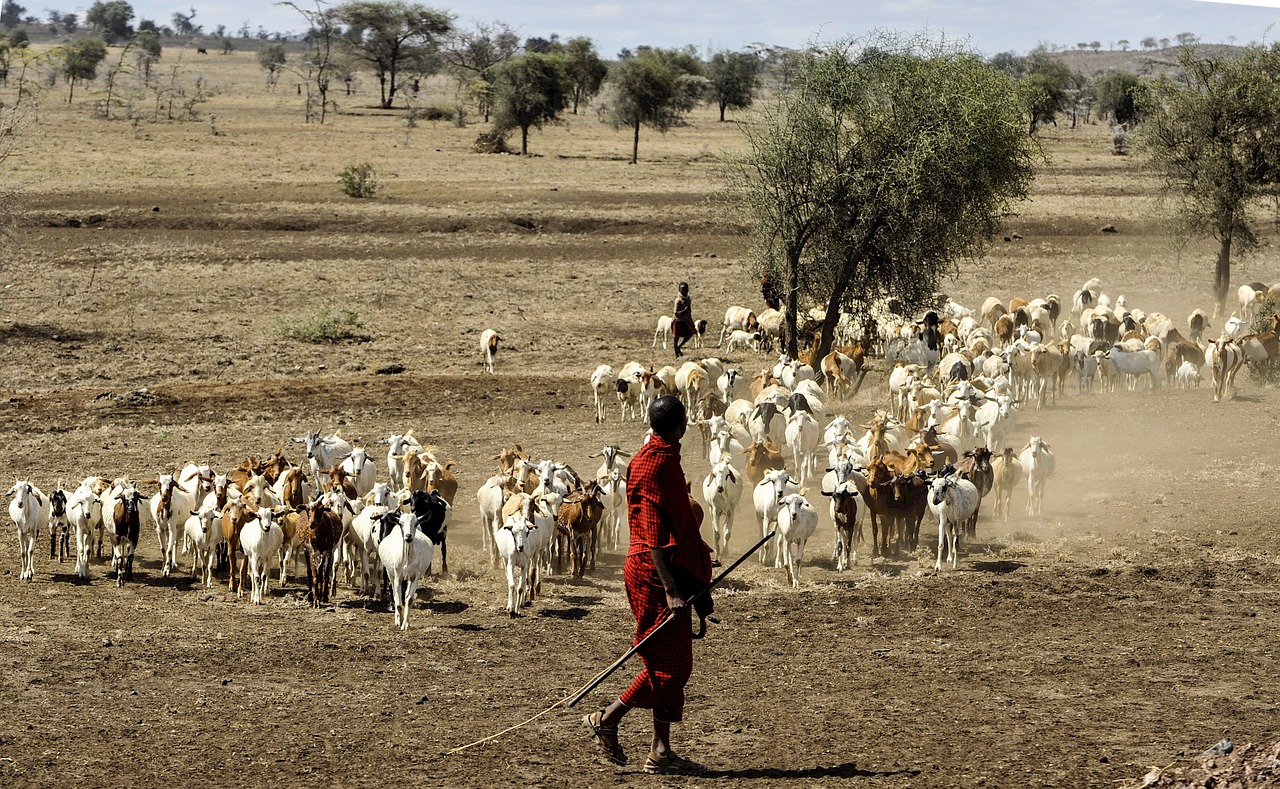WHAT TRAVELERS ARE SAYING
“All three of the safari stops (Serengeti, Ngorongoro Crater & Tarangire) were equally fantastic with their variety of wildlife to be seen and each camp we stayed at was also wonderful. The camp staff were very friendly and accommodating. ”
“The (safari) camps are simply amazing. The service is impeccable, the accommodations are clean and comfortable, and the food is excellent... Donating 10 percent of the client’s trip cost to microfinance efforts puts OneSeed ahead of its competitors, and to me, it’s an important reason for recommending the company to my friends. ”
“This is my second OneSeed expedition. I’m already looking for a third. I consider myself an above average traveler when it comes to booking things on my own, but OneSeed makes it so easy that it’s not worth my time to try and find a more custom solution.”
Read More Reviews
WHAT TO BRING
Packing System: You are responsible for your belongings throughout the expedition; we recommend a small duffle and/or daypack to carry your clothing and personal items as you journey from one national park to another. Any luggage not needed on the safari may be left in storage at the partner lodge in Arusha. See current weather conditions for Arusha and Ngorongoro Crater here.
Don't forget
We need you to have everything on the list below for our expedition to go smoothly, so there is no one item that is more important than another. Double-check your entire list and make sure to have/review these important items below. We recommend talking to your doctor about the use of any prescription medicine or vaccinations.
Valid Passport
Your passport must be valid for 6 months after your arrival date in Tanzania.
Medical insurance card
Should anything happen, we can get you the care you need.
Required Vaccinations
It is important to receive required vaccinations before traveling abroad. Check the CDC's recommendations for Tanzania here.
The List (check it twice)
Safari Gear
Light down jacket (for cool mornings and evenings)
Lightweight, breathable pants
Shorts, mid-thigh or longer
Rain jacket
Synthetic T-shirt (2)
Sunhat
Waterproof, comfortable boots or athletic shoes - they will get dirty!
Breathable socks
Closed-heeled sandals
Daypack
Water bottle
Headlamp
Sunscreen
Sunglasses
Personal toiletries and medicine
Hand sanitizer
Swimsuit
Small camp pillow
NOTE: Avoid wearing black or dark blue clothing while on safari as the Tsetse fly is attracted to darker clothing and will bite skin, leaving a bite similar to that of a mosquito.
Documents and Logistics
International flights booked and confirmed to Kilimanjaro International Airport
Passport valid for 6 months after arrival date
Photocopy of passport
USD for 15 or 30-day Tanzania Visa (available upon arrival for US citizens)
Medical insurance card
Cash for tipping guides, buying souvenirs, incidental costs, etc.
Yellow fever vaccination card (if applicable, not required for travelers coming from the USA)
Other (optional)
Reading material for the evenings
Hotel reservations for extended time in Tanzania (if applicable)
Camera
Binoculars
Bandana (for dust and wind)
Energy bars or snacks in-between meals
Zip-lock bags for waterproofing passport and other valuables
Ear Plugs
CLIMATE OVERVIEW
Due to the ranges in elevation, the climate and temperatures will vary throughout the Serengeti. In June, July, August, September & October the afternoon temperatures are usually between 68°F and 86°F and most days will be clear and sunny. It cools off at night and into the morning so be sure to pack warm clothing because morning game drives in open vehicles will be cold.
March through May is considered Tanzania's "wet" season and rainfall levels will vary throughout these months. Bringing warm clothes and good rain gear will keep you prepared for any weather you may encounter.
Frequently Asked Questions
Does it matter what time I arrive or depart?
If you arrive/depart at any time on the scheduled start/end dates of your trip, OneSeed will arrange for airport transfers. Pickup will be arranged to efficiently transfer clients with flight times in close proximity (generally within one hour of each other). If you plan to arrive before the scheduled start date or stay past the end date of your trip, you will need to coordinate your own airport transfer or purchase a trip extension through OneSeed.
Do I need a visa? And what about passport requirements?
- Visas are required for US citizens. You can purchase your visa at the airport upon arrival to Tanzania ($100 USD) OR obtain your Visa prior to traveling to Tanzania. Please keep your passport and visa with you at all times during your expedition.
- Your passport must be valid for six months after your country departure date. It should also have at least one blank page for any necessary stamps.
- Visit the State Department website for Tanzania travel information for the most up-to-date Tanzania travel requirements.
What happens if my trip is altered due to unforseen circumstances?
Per the Assumption of Risk and Liability Waiver Agreement, if your expedition must be altered at any point, you are responsible for any additional costs.Canceled flights and transportation strikes happen. We do our best to ensure that your experience is unaltered by handling the situation efficiently and smoothly. For complete terms and conditions, see here. We recommend reviewing optional trip cancellation and interruption insurance to cover expenses in these instances. Some instances that have come up are:
- A twisted ankle one week before a trip
- Power outages in the Atlanta airport leaving travelers stranded
- Burst appendix!
- Earthquakes or floods cutting a trip short
DO I NEED ANY IMMUNIZATIONS OR MEDICINE?
- Talk to your physician and follow recommended CDC guidelines for Tanzania.
- Yellow Fever Vaccination Cards are required for some travelers depending on their travel itinerary. The government of Tanzania requires proof of yellow fever vaccination upon arrival if you are traveling from a country with risk of yellow fever (this does not include the US). If you're traveling from any of the countries listed in this link, a yellow fever vaccine is required.
- Question on vaccines? Call your local Travel Medicine Clinic or Yellow Fever Vaccination Clinic
WILL WE NEED TO FILTER WATER?
Safe drinking water will be provided to you during your safari. When in Arusha, be sure to only drink bottled water and do not use tap water to brush your teeth.
WHAT FOOD SHOULD I EXPECT TO EAT DURING SAFARI?
- REMEMBER: Avoid street food when you first arrive in Tanzania! You do not want to begin your trek with unnecessary stomach issues.
- Breakfast may include crepes/pancakes, toast, eggs, sausage/bacon, fruit, tea, hot cocoa, and coffee. Lunch may include a sandwich, fried chicken, puff pastry with either spinach or meat/carrots/peas, candy/biscuit, a banana, and hard-boiled eggs. Dinner may include soup, pasta, steak, chicken, fish, salad, and fruit with some local Tanzanian dishes.
- OneSeed is able to accommodate most allergies and dietary preferences. If you didn't include this information on your registration form, please email info@oneseedexpeditions.com. We recommend any vegan travelers bring extra protein bars.
WHAT ARE THE ACCOMMODATIONS LIKE ON SAFARI?
You will be staying at our partner tented camps run by Ang'ata. There are large private or shared tents as well as a lounge tent and a dining tent. Each guest tent has an en-suite bathroom with shower, vanity, and flush toilets. King size beds or two twin beds are available by request. The lounge is the place to meet other travelers and share your day’s safari stories while enjoying a cup of Tanzanian coffee or tea. Breakfasts, lunches, and dinners are served in the dining tent, freshly prepared by your chef on a daily basis. Bush TV (local name for the campfire) is lit when the weather permits.
CANCELLATION AND REFUND POLICY
- Please refer to our Terms & Conditions here: www.oneseedexpeditions.com/terms-of-service
DO I NEED TO TIP MY GUIDE?
Travelers often want to know how many staff members to anticipate and how to accurately tip each individual. For smaller private groups (2-4) you will typically have one guide and support staff at your tented Ang'ata camps. We recommend setting aside $15/per person per day for your safari guide and $5-10/day for the staff tipping box at the Ang'ata camps. These amounts are simply a suggestion, and travelers are welcome to tip as they see fit.
WHAT IS THE ELEVATION? IS ALTITUDE A CONCERN?
The highest elevation you will reach on your safari is 7,500 ft. Expect a chillier night on top of Nogrongoro Crater due to the higher altitude.
HOW DOES THE SEASONAL MIGRATION AFFECT WHAT ANIMALS ARE SEEN ON SAFARI?
- A safari in Tanzania will take your breath away regardless of season but there are certain months which may offer different experiences than others.
- The best wildlife viewing months in Tanzania are during the Dry Season from late June to end of October since there is less vegetation and animals congregate around waterholes and rivers. The best chance of seeing the wildebeest migration in the Serengeti is during June and July and the time to see the wildebeest calving is in late January to February.
CAN I LEAVE SOME OF MY LUGGAGE IN THE HOTEL DURING THE TREK?
You will be staying at the same hotel before and after your trek in Arusha. Leaving an extra bag at either hotel during your safari is free of charge.
WHAT WILL THE WEATHER BE LIKE?
Visit the terrain section above to see average temperatures and weather forecasts for Arusha and the Serengeti.
ANY OTHER TIPS?
We always ask that you stay safe on the trail by drinking plenty of water, eating well, and communicating openly with your guide about any issues that arise. Be sure to take care of your belongings, be respectful of your travel companions, practice your Swahili with people you meet along the way, and respect the natural landscape that you're exploring.


